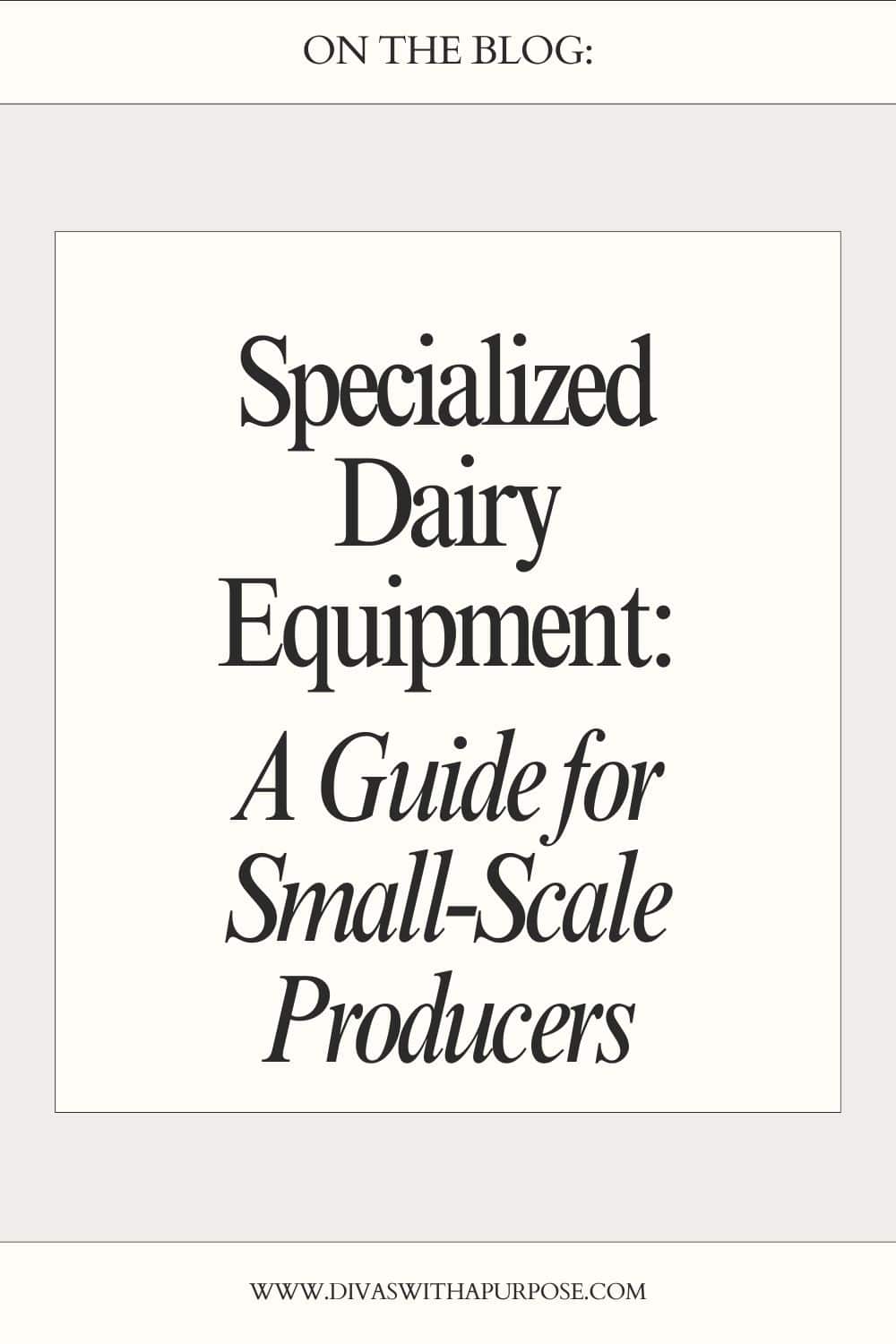Specialized Dairy Equipment: A Guide for Small-Scale Producers
Starting a small-scale dairy operation can pose many challenges, but using the right equipment can make a significant difference. Specialized dairy equipment helps you manage costs and improve efficiency by streamlining processes like milking, pasteurization, and packaging. Small-scale producers benefit greatly by investing in equipment tailored to their needs, allowing them to produce higher-quality milk and dairy products more efficiently.
Using specialized machines can also lead to substantial savings and improved product standards. For example, using proper milk processing equipment can reduce labor costs and minimize waste. Companies like Milky Day offer various tools, such as small cream separators and pasteurizers, to meet your specific needs.

Furthermore, specialized equipment levels the playing field, allowing small producers to compete with larger dairy farms. By optimizing your operations, you can serve better products to your community while maintaining profitability. Overall, investing in quality machinery not only aids in meeting daily demands but also helps in setting up your business for long-term success.
Improving Dairy Production Efficiency
Improving dairy production can lead to higher efficiency and better-quality products. By using modern technology, small-scale dairy producers can increase output and streamline operations effectively.
Advantages of Automation in Milking
Automated milking systems are changing how dairy farms operate. These systems reduce the time and effort needed to milk cows, allowing you to focus on other tasks. Automated systems often include features that guarantee each cow is milked properly, which can lead to increased milk yield. With such technology, cows can be milked more comfortably and consistently, improving their overall health and well-being.
Automation also helps in maintaining a clean and hygienic milking process, which is important for high-quality milk production. You can manage the system remotely, giving you flexibility and control over the milking process. This can be particularly beneficial if you have a small staff or need to optimize your resources effectively.
Upgrading to Modern Pasteurization Methods
Modern pasteurization methods are necessary for producing safe and high-quality milk. Traditional methods might not eliminate all bacteria, but newer techniques like high-temperature short-time (HTST) pasteurization can. This method heats milk quickly and then rapidly cools it, ensuring the safety and flavor of the milk.
With these modern techniques, the shelf life of dairy products increases, allowing you to reach a broader market. It’s a cost-effective way to meet health standards and provide customers with safe products. Additionally, it reduces the chances of spoilage, which means less waste and more profit. Using up-to-date pasteurization can play a key role in meeting both consumer demands and regulatory requirements.
Benefits of Real-Time Milk Quality Analysis
Real-time milk quality analysis is a game-changer for small-scale producers. By using this technology, you can immediately assess the quality of milk as it is produced. This instant feedback allows you to make necessary adjustments to improve milk quality on the spot, avoiding potential issues down the road.
Such analysis helps track key metrics like fat content and protein levels, ensuring that your products consistently meet quality standards. With this information, you can better plan feeding and management strategies to produce milk that satisfies market demands. This tool improves the quality of your milk and improves your operational efficiency and market competitiveness.
Improving Product Quality and Safety
Using specialized dairy equipment can significantly boost the quality and safety of dairy products. This involves maintaining high hygiene standards during production and ensuring that temperature is controlled throughout the process.
Implementing Hygienic Equipment Standards
Hygienic standards are key to producing safe dairy products. Equipment should be designed to be easily cleaned, with minimal crevices where bacteria can hide. Stainless steel is a common material for dairy equipment because it resists corrosion and maintains cleanliness. Regular sanitation schedules should be established, with checks to guarantee all surfaces in contact with milk are thoroughly cleaned.
This step is important in preventing the contamination of milk products by harmful bacteria, which can lead to health issues for consumers. Food safety guidelines also stress the importance of workers adhering to hygiene standards, including wearing clean and sterilized gear.
Ensuring Consistent Product Through Temperature Control
Temperature control is important in maintaining dairy product quality. From storing raw milk to processing and pasteurization, controlling temperatures helps prevent spoilage and pathogen growth. Specialized equipment, such as refrigerated tanks and pasteurizers, provides consistent temperature environments, thus preserving milk quality.
Pasteurization is particularly effective in removing pathogens from milk, making it safer for consumption. Proper temperature control also extends the shelf life of dairy products, maintaining their taste and nutritional value for a longer period. Effective control measures can significantly reduce health risks associated with milk and dairy production.
Conclusion
Using specialized dairy equipment in small-scale operations can make a real difference. This type of equipment helps you manage daily tasks more efficiently, including milking and processing.
You can save time and energy, which can be a big deal for a small-scale producer. Additionally, these tools often contribute to producing higher-quality dairy products.
Investing in the right equipment can also support growth over time. It can increase productivity and potentially lead to better market opportunities for your dairy products.
